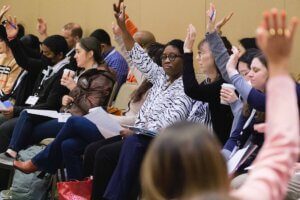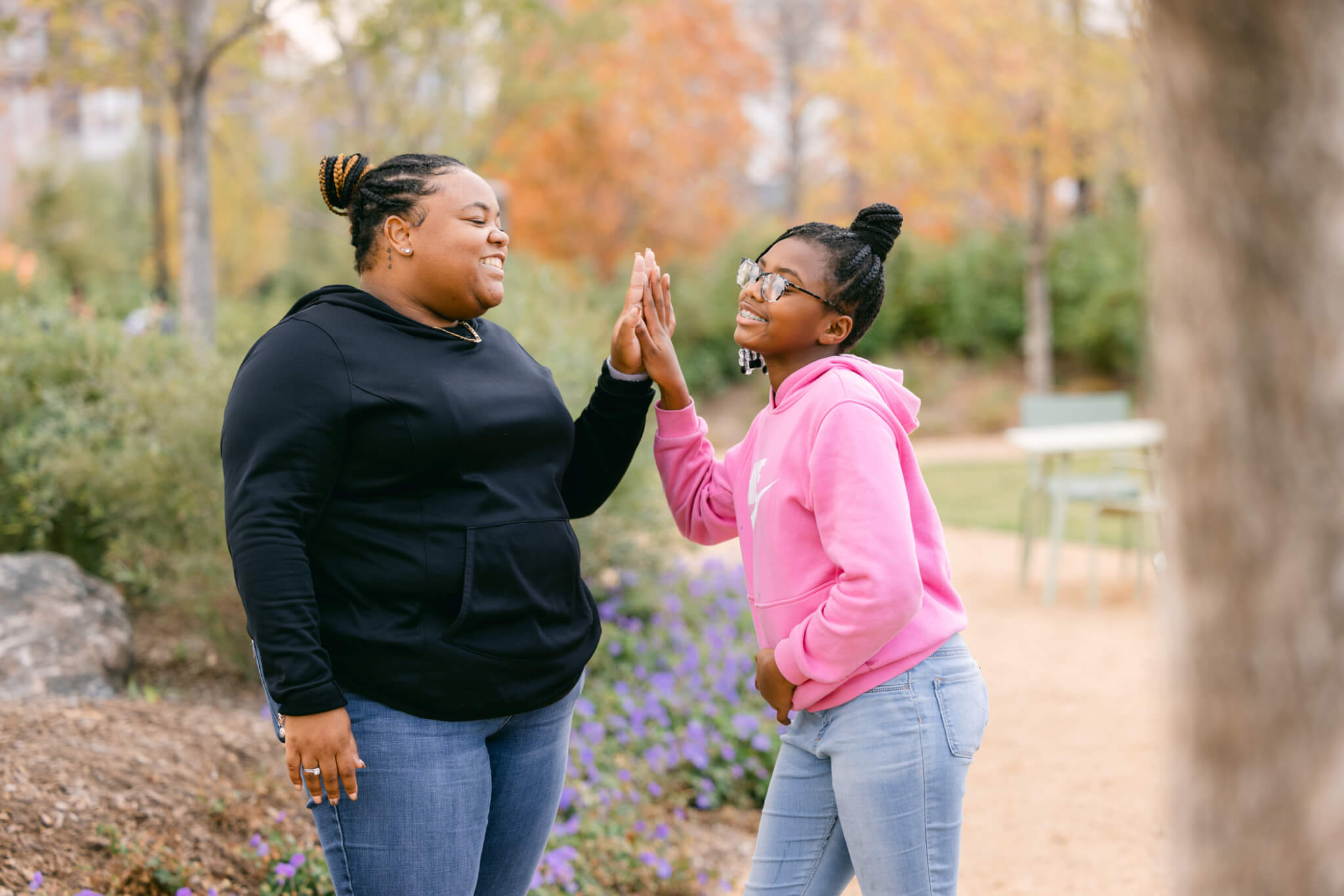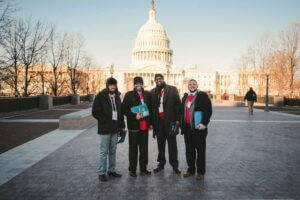In Real Life Blog Series: Building Life Skills and Independence for Youth in Foster Care
In support of April being National Financial Literacy Month, MENTOR: The National Mentoring Partnership (MENTOR) is recognizing those who have demonstrated a deep commitment to delivering critical connections to our nation’s young people in this way, to aid them in achieving success at home, school and ultimately in the workforce. Learn more about how Silver Lining Mentoring’s Learn & Earn program is helping youth in foster care build skills and independence through financial literacy education.
On Jerome’s eighteenth birthday he packed his few belongings and said goodbye to the staff at the group home where he’d been living for the past nine months. The simple parting words from his supervisor as he dropped Jerome at the train station said it all: “Good luck, bud – take care of yourself.” Jerome needed more than luck; now that he had aged out of foster care his responsibility would be just that – to take care of himself, for there was no one else who would take care of him.
Were you ready to be completely independent at age 18, or even 21? Were you prepared to pay for your housing, living expenses, transportation, health care, and educational costs?
The vast majority of young adults in the United States are reliant on multiple forms of support, including financial support, from their families at least until their mid-twenties and often well into their thirties. For young people growing up in foster care, those who were removed from their families due to abuse and neglect, relying on familial financial assistance isn’t an option.
After being bounced around from place to place, frequently changing schools, communities and caregivers several times in one year, instability is the norm for youth in foster care like Jerome. They don’t have the benefit of consistent relationships with adults, or even with peers, and certainly don’t have the luxury of depending on parents for financial help.
Most young people in foster care turn eighteen and face the daunting reality of emancipation from the child welfare system, effectively ending all former forms of support for their basic needs (shelter, food, medical care, etc). Only half of youth who leave foster care have a bank account at age 21. A high proportion use alternative financial services, such as check-cashing services.*

The importance of learning life skills, particularly financial literacy, is critical for youth in foster care and those who have aged out of care. At Silver Lining Mentoring we focus exclusively on meeting the needs of young people who have been impacted by foster care. The foundation of our approach is rooted in relationships. We recognize that when we create a community of caring adults and peers, young people gain a sense of belonging, and when we offer opportunities to build life skills and financial assets, our young people thrive.
Our Learn & Earn program brings together four essential ingredients that set our young adults up for success after aging out of foster care. We combine one-on-one mentoring, with life skills, asset building and clinical support to help level the playing field for youth who are forced to fend for themselves as young adults. Learn & Earn participants are ages sixteen and older – each is paired with a volunteer life skills mentor who has been carefully screened and trained to provide population-specific support. Young adult participants complete a needs assessment prior to starting the program in order to gauge existing skills and to set individual learning goals and financial savings goals.
Our curriculum focuses on ten life skill domains that are the greatest areas of need for young people aging out of foster care ranging from education, employment, and financial literacy to housing, transportation, and health care. Participants learn at their own pace and utilize an experiential teaching model whereby they don’t merely read or hear a lecture about opening a bank account, applying for a job or navigating public transportation, they go out into the community with their mentor and determine which financial institution and bank account can meet their needs, create a resume and participate in mock interviews, and learn to read a bus schedule and try out the best subway route to get to their classes on time.
We teach participants how to create and live on a budget, discuss the difference between financial wants and needs, learn how to be savvy grocery shoppers, explore the importance of building good credit and paying bills on time, and help young people understand how to avoid debt. All the while, when participants demonstrate their learning in each skill area, they earn money toward their savings goal.
When young people save the money they’ve earned, Silver Lining Mentoring matches their savings dollar for dollar so that participants can afford to put down a security deposit on their first apartment, pay tuition for college courses, or purchase a used car to allow them to get to and from their job – the kinds of financial supports that many of us received from our families.
At Silver Lining Mentoring, our goal is to help young people in foster care and those aging out of care to gain the sense of belonging and life skills that are essential to success in adulthood. Financial literacy is one of the most critical elements of self-sufficiency, but it can’t exist in a vacuum.
We are committed to ensuring that the youth we serve not only learn how to manage and save money but that they gain relationships with caring committed adults who can serve as a supportive sounding board along the way. When they age out of the foster care system, young adults like Jerome deserve more than just luck that they’ll make it on their own; they need the types of safety nets of support that are woven from relationships and life skills that most kids learn from their families.
Join us in helping youth in care and those aging out of foster care and become a mentor in real life, so that when they turn eighteen and are told to take care of themselves, young adults can find the silver lining of independence while also enjoying the interdependence of meaningful mentorship.
*(Peters, Sherraden, and Kuchinski 2012a).
###
9 million young people in America are in need of a trusted adult in their lives to guide them in moments big and small. Join the In Real Life movement and become an advocate, make a donation or become a volunteer.


